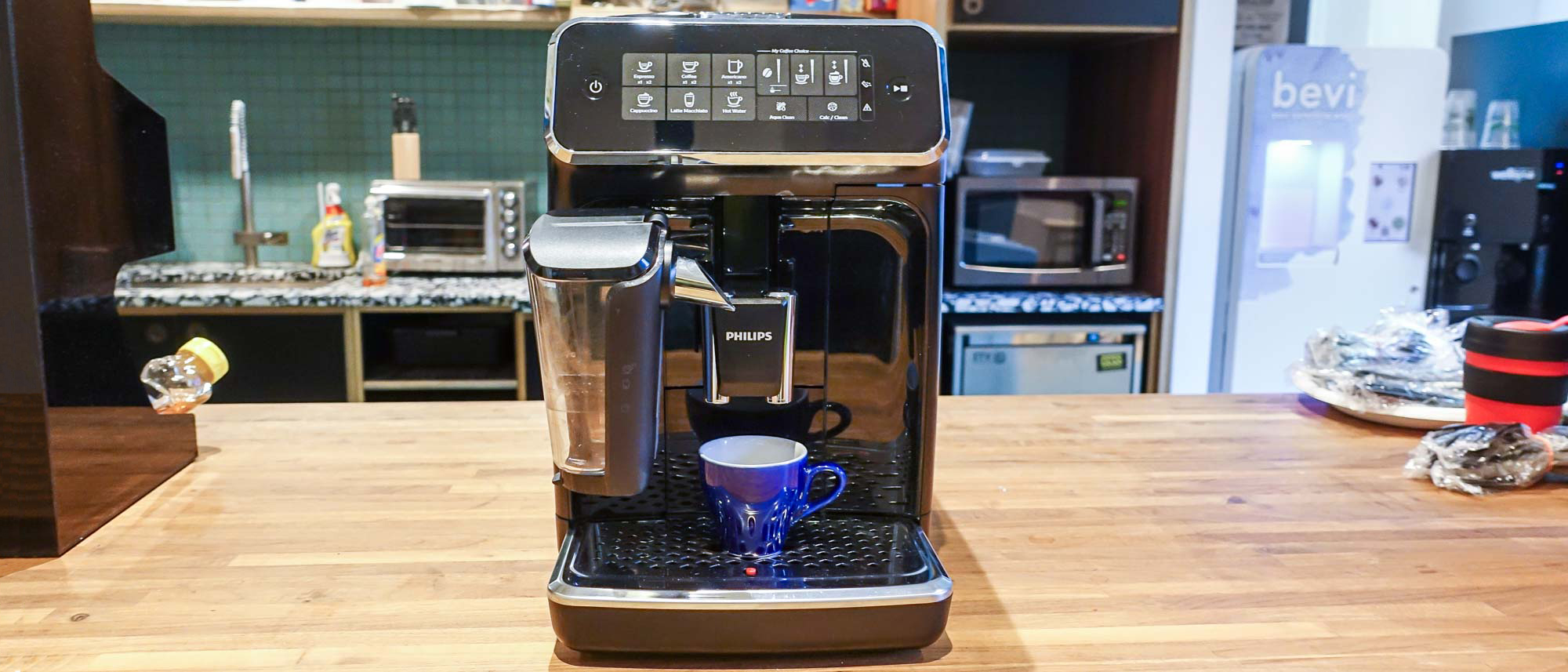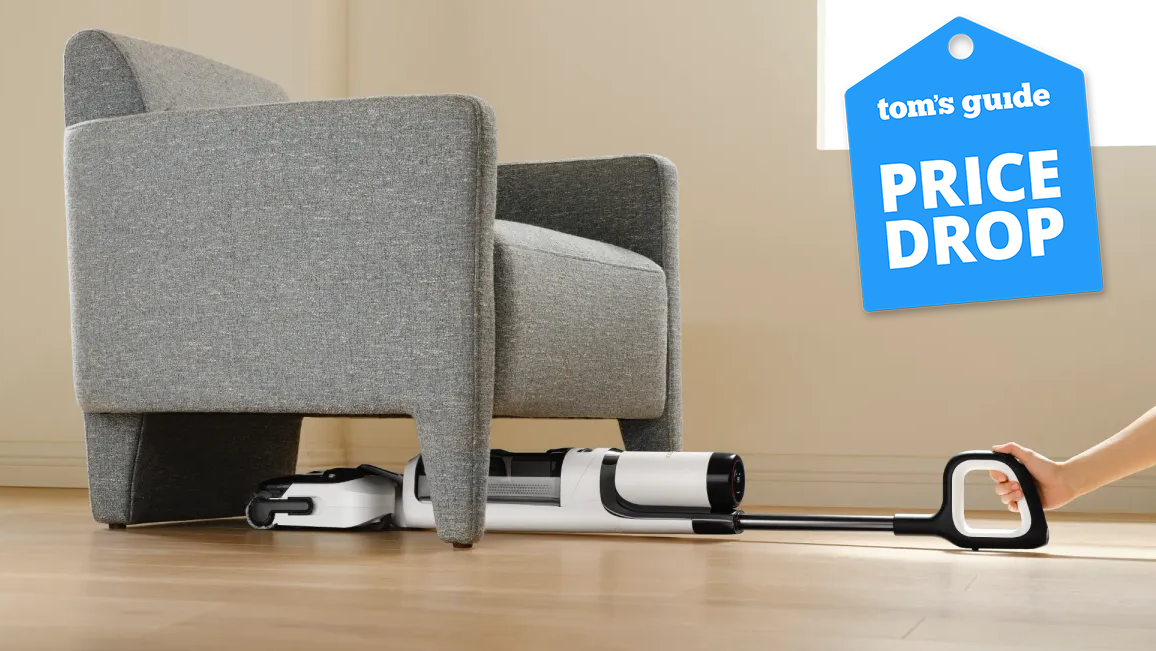Tom's Guide Verdict
The Philips 3200 Series Fully Automatic Espresso Machine w/ LatteGo makes it a cinch to whip up a cappuccino, but the coffee could be stronger.
Pros
- +
Thoughtful design
- +
Easy to clean
- +
Simple to use
Cons
- -
Coffee kind of weak
- -
Milk foam could be denser
Why you can trust Tom's Guide
Materials: Plastic, metal
Capacity: 60.9 ounces
Size: 17 x 14.6 x 9.7 inches
Settings: Espresso, hot water, cappuccino, coffee, latte macchiato and americano
Removable water reservoir: Yes
Pressure: Unknown
Milk frother: Yes
Grinder: Yes
Accessories: Measuring scoop, water hardness test strip, AquaClean filter, LatteGo storage lid, grease tube
One of the benefits of owning one of the best espresso machines is that you can whip up a cappuccino or latte without having to schlep to the nearest Starbucks. But, what if you don’t have barista-level experience when making one of those frothy beverages? The Philips 3200 Series Fully Automatic Espresso Machine w/ LatteGo simplifies the process with a one-step operation. All you need to do is add coffee beans and milk, and press a button.
Convenient yes, but as we discovered during our Philips 3200 Series review, it comes at a price, both literally and figuratively. Read on to find out what we did and didn’t like.
Philips 3200 Espresso Machine review: Price and availability
The Philips 3200 Series Fully Automatic Espresso Machine w/ LatteGo retails for $775 on Amazon and other major online retailers. You can also purchase it with an AquaClean filter for $817 if you want to save yourself the trouble of having to descale the machine.
Replacement filters cost $18.12 each on Amazon, or can be purchased in a two-pack for $28. Each filter is good for around 5,000 cups of coffee.
Philips 3200 Espresso Machine review: Design
While the Philips 3200 isn’t as flashy as, say, a SMEG or Breville espresso machine, its glossy black finish with chrome-like trim is attractive, and won’t detract from your kitchen’s aesthetic.
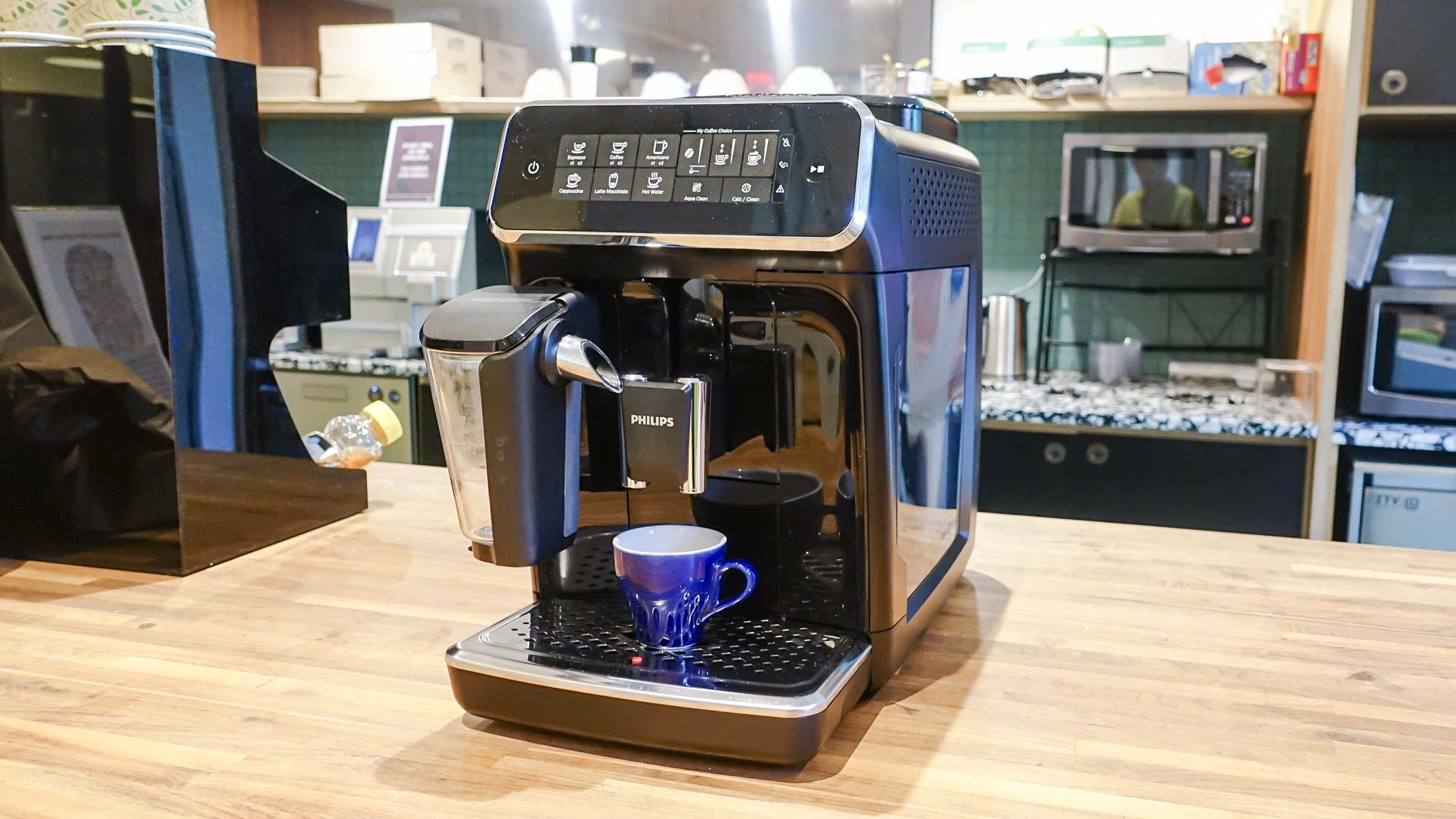
The face of the machine features six buttons for selecting your beverage (espresso, cappuccino, macchiato, Americano, coffee, and hot water) alongside buttons that let you customize the size and strength of the coffee, as well as the amount of steamed milk.
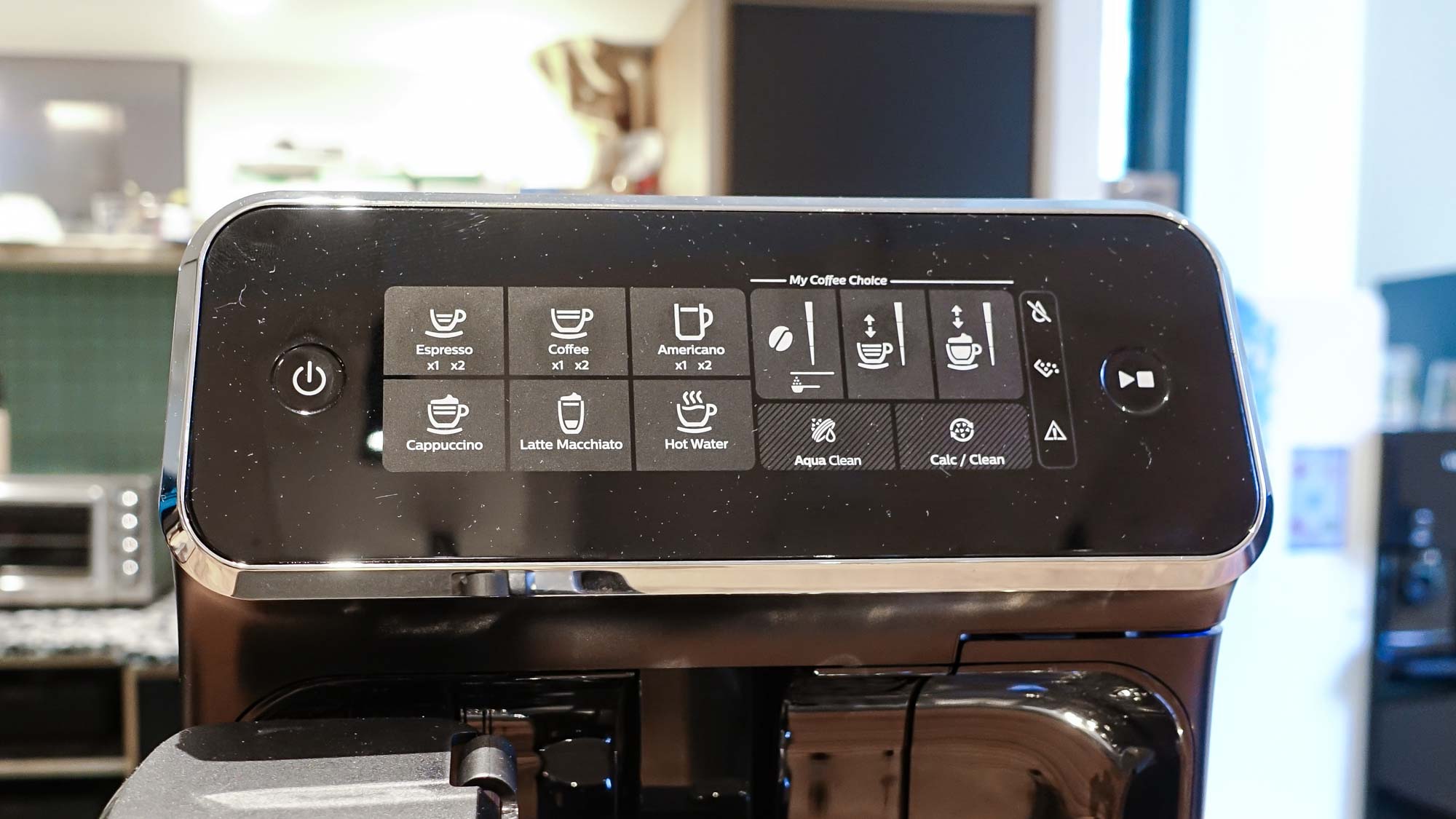
Below these controls is a spout that dispenses the coffee — cleverly, it can be raised and lowered to accommodate different size cups — and the LatteGo, a small removable container that creates steamed milk and dispenses it into your cup. Atop the machine is a well for coffee beans, covered by a transparent gray removable lid. The machine also accepts coffee grounds, which can be added via a small door, also on the top.
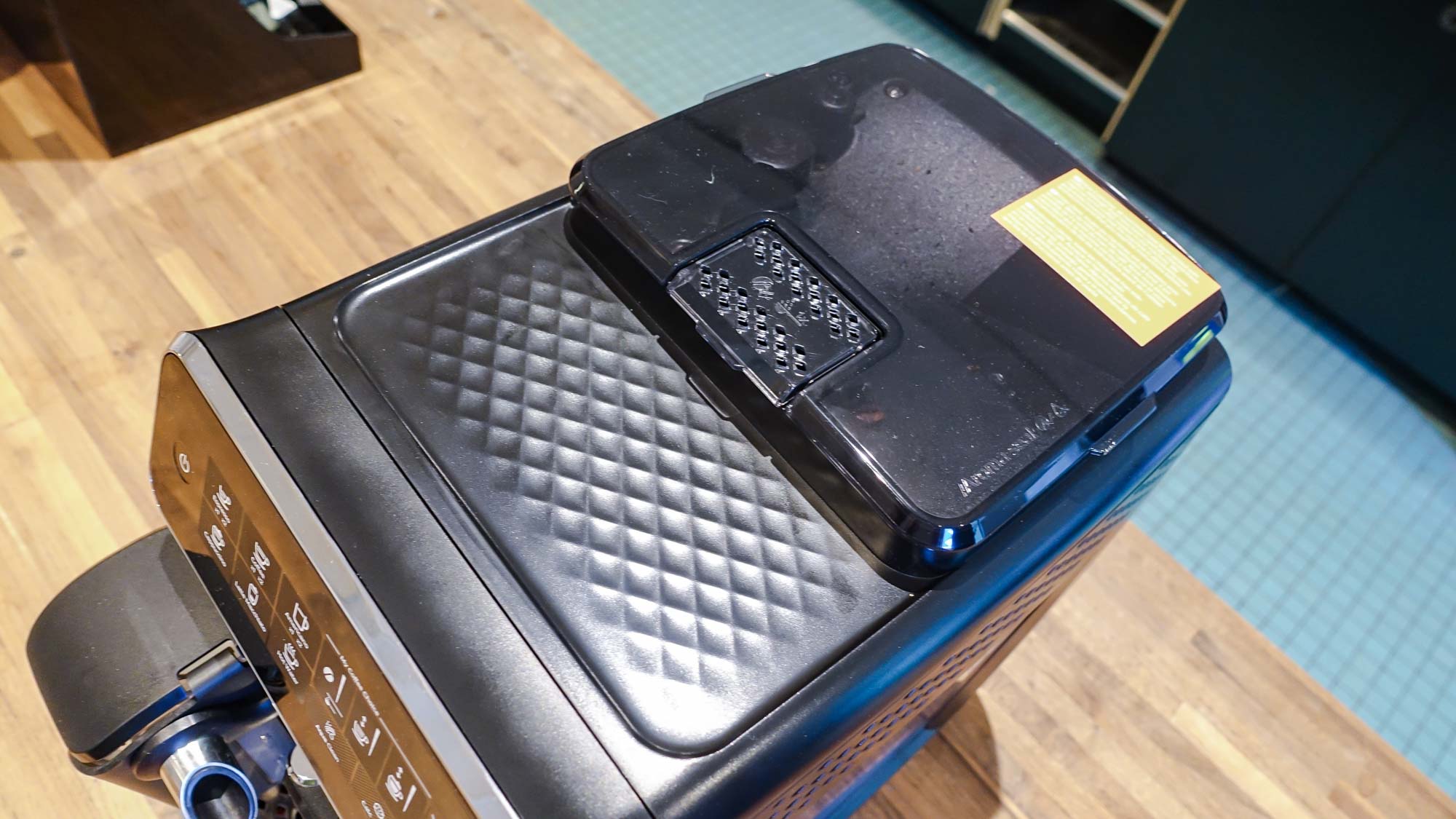
Your cup sits on a metal grille and removable base which must be removed and emptied when it reaches max capacity; the tray slides out easily, and a small spout lets you drain any liquid without worrying about spilling. The used coffee grounds are stored in their own removable container, and can be disposed of as easily (coffee grounds are great for your garden, so don’t just throw them in the trash).
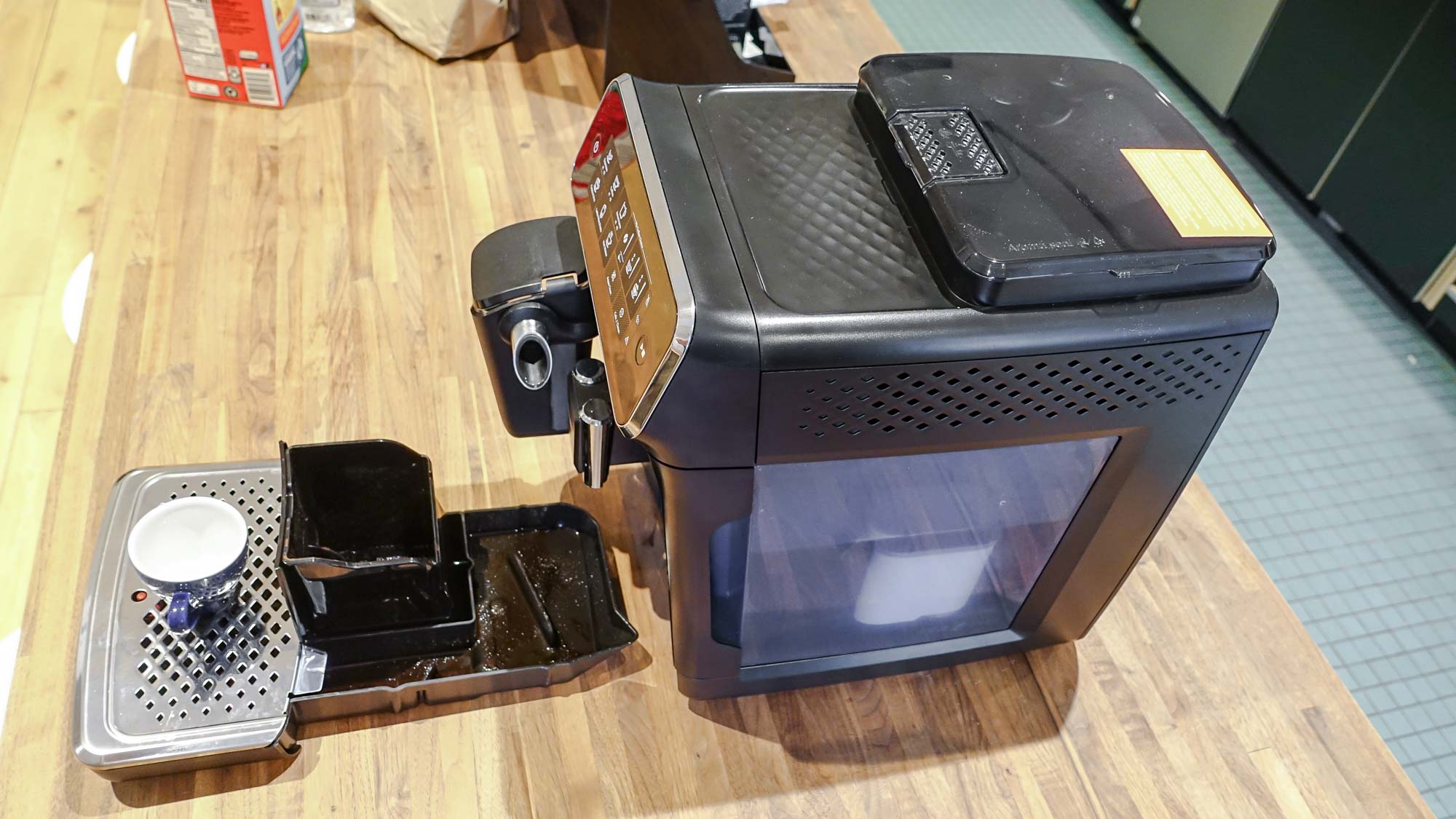
The Philips 3200 measures 17 x 14.6 x 9.7 inches and weighs 15.4 pounds; I liked that it was fairly narrow, which means it won’t take up as much counter space as wider coffee machines.
Philips 3200 Espresso Machine review: Performance
To test the Philips 3200, we set it up in our office to let our coworkers try it out — and to give them a reprieve from the pretty dreadful pod coffee machines. While they — and I were generally pleased with the results, the Philips didn’t pump out espresso that was as strong as we’d like. That being said, the coffee it made tasted good, and was not overly bitter.
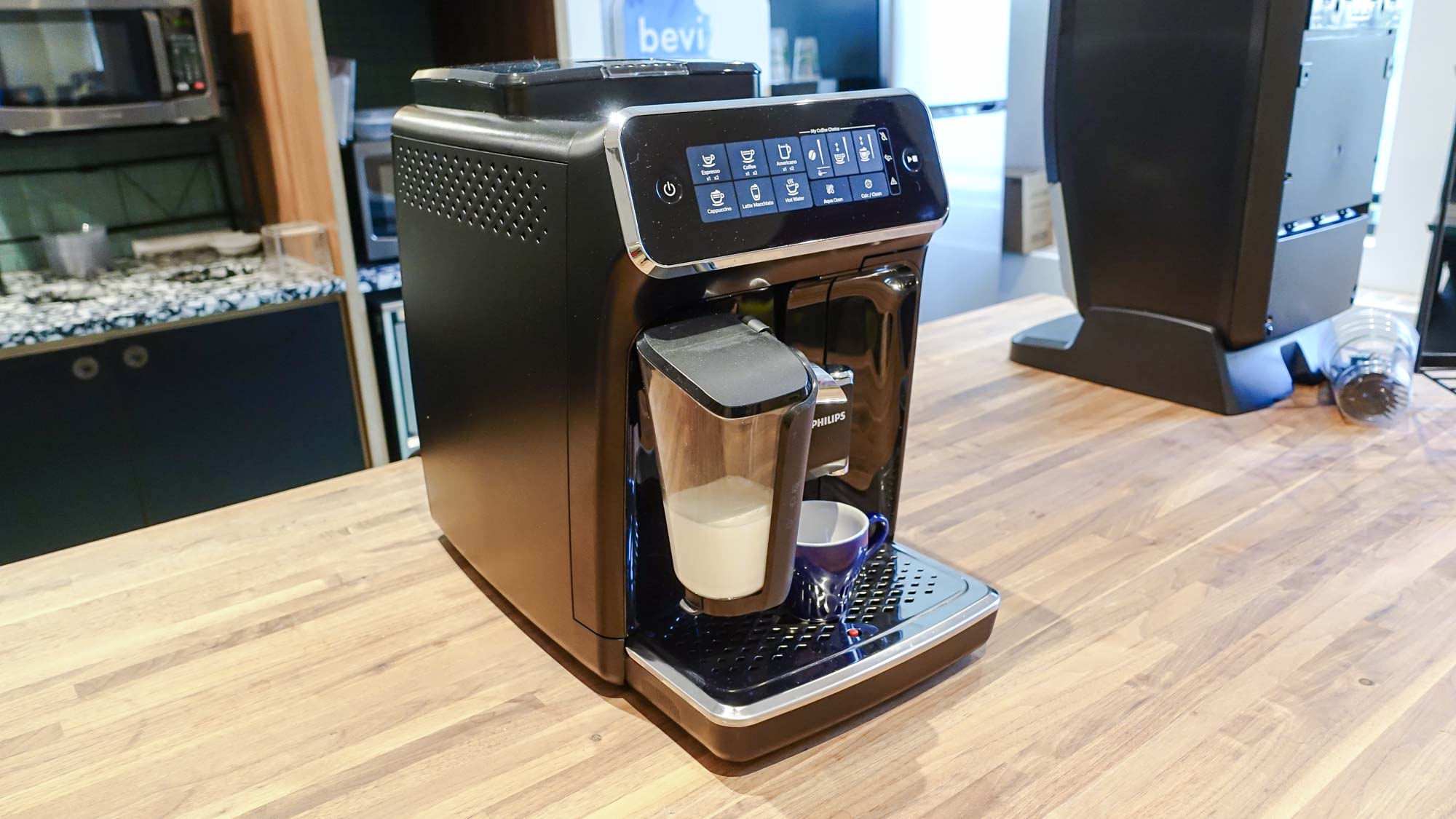
Even when we adjusted the grind to its finest setting, we still found ourselves adding an extra shot of espresso to our morning cappuccino to give us the jolt of caffeine we were looking for. In addition, the crema it produced wasn’t as thick as it should be, and dispersed rather quickly. “Crema was really thin, and shot was pretty weak,” wrote one co-worker. “Espresso was a wee bit watery, but solid overall,” said another.
The LatteGo attachment was a little tricky to figure out at first, but easy to use once I got the hang of it. The attachment comes in three parts: a clear receptacle that holds the milk, a black plastic clip that connects to the machine, and a lid for the milk container. The machine sends steam through a small channel, where it mixes with the milk and then it pours out the top of the container into your cup. It’s a clever system, but you have to make sure the milk container is securely clipped in; otherwise, you’ll end up with a mess.
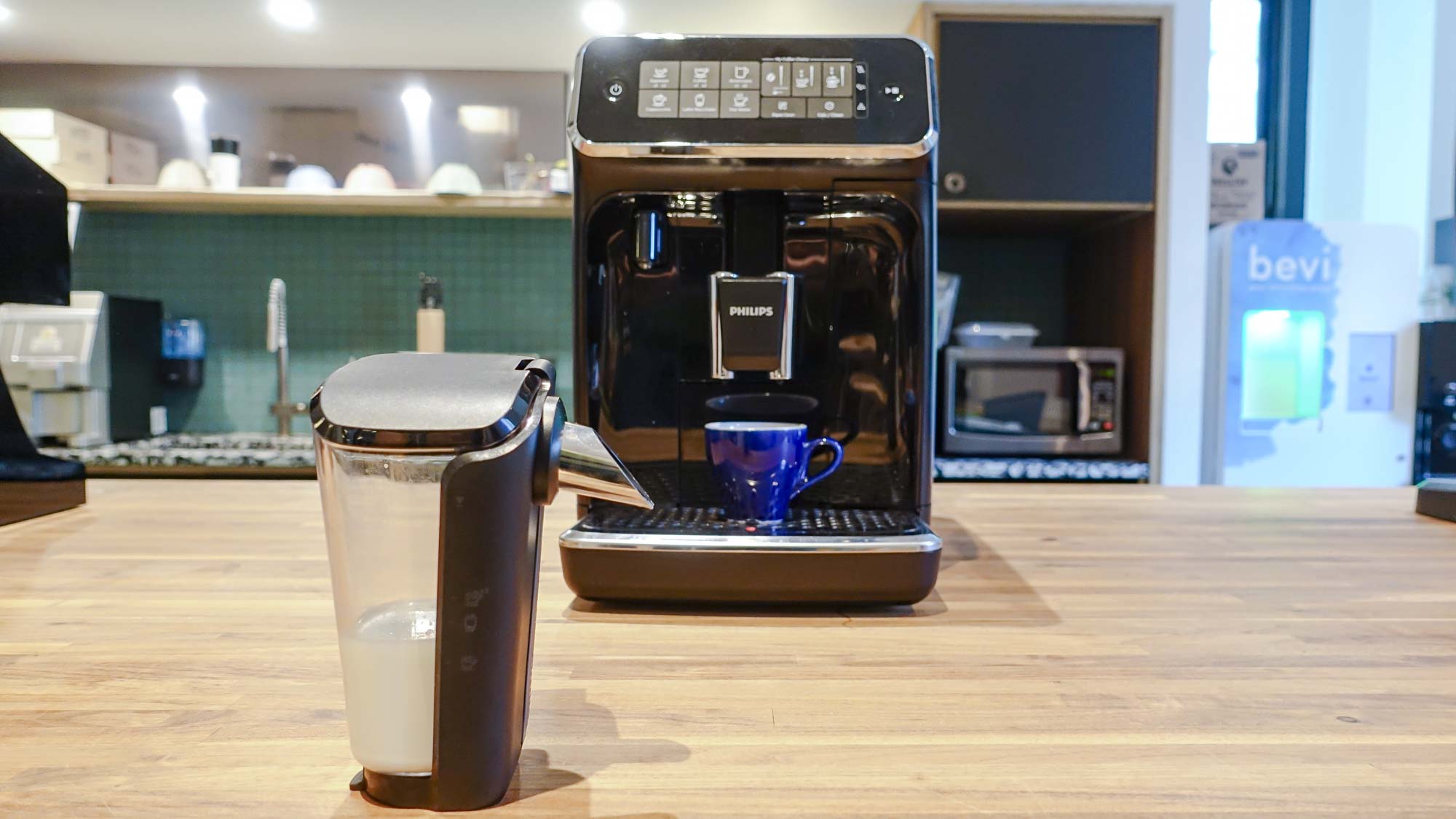
As with the coffee, the steamed milk was good, but not great. It held its form well, but wasn’t as dense as we’d had from other milk frothers. “Milk foam is ‘ok’ at best,” commented one colleague.
Philips 3200 Espresso Machine review: Verdict
Overall, the Philips 3200 Series Fully Automatic Espresso Machine w/ LatteGo turns out solid, if unspectacular coffee. It’s thoughtfully designed, with a narrow shape that makes it great for those with less counter space. Plus, the parts are easy to remove and clean. The LatteGo attachment also makes it much easier to whip up a cappuccino than with a separate frother, especially for those who aren’t as familiar with the process. However, the quality of the coffee could be better, especially when you’re spending more than $750 on an espresso machine.
Among the best espresso machines, the Breville Bambino Plus was better at making both coffee and steamed milk, but it lacks a built-in grinder and the one-touch simplicity of the Philips machine — which for many, may be enough.

Michael A. Prospero is the U.S. Editor-in-Chief for Tom’s Guide. He oversees all evergreen content and oversees the Homes, Smart Home, and Fitness/Wearables categories for the site. In his spare time, he also tests out the latest drones, electric scooters, and smart home gadgets, such as video doorbells. Before his tenure at Tom's Guide, he was the Reviews Editor for Laptop Magazine, a reporter at Fast Company, the Times of Trenton, and, many eons back, an intern at George magazine. He received his undergraduate degree from Boston College, where he worked on the campus newspaper The Heights, and then attended the Columbia University school of Journalism. When he’s not testing out the latest running watch, electric scooter, or skiing or training for a marathon, he’s probably using the latest sous vide machine, smoker, or pizza oven, to the delight — or chagrin — of his family.
